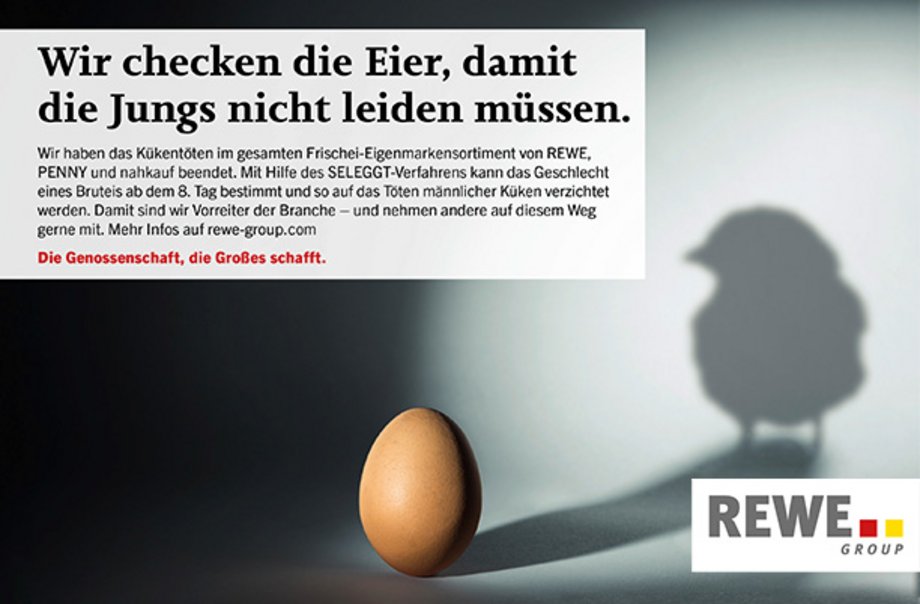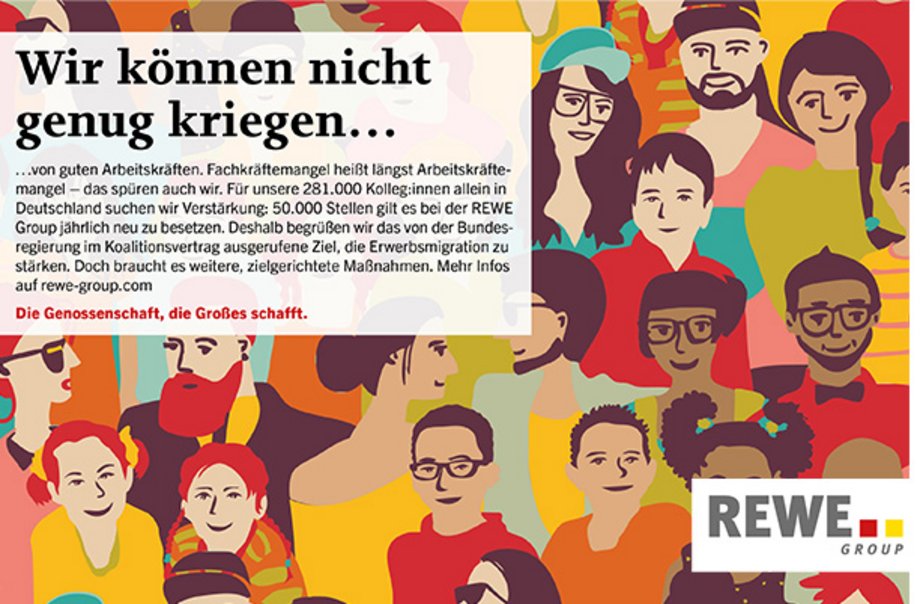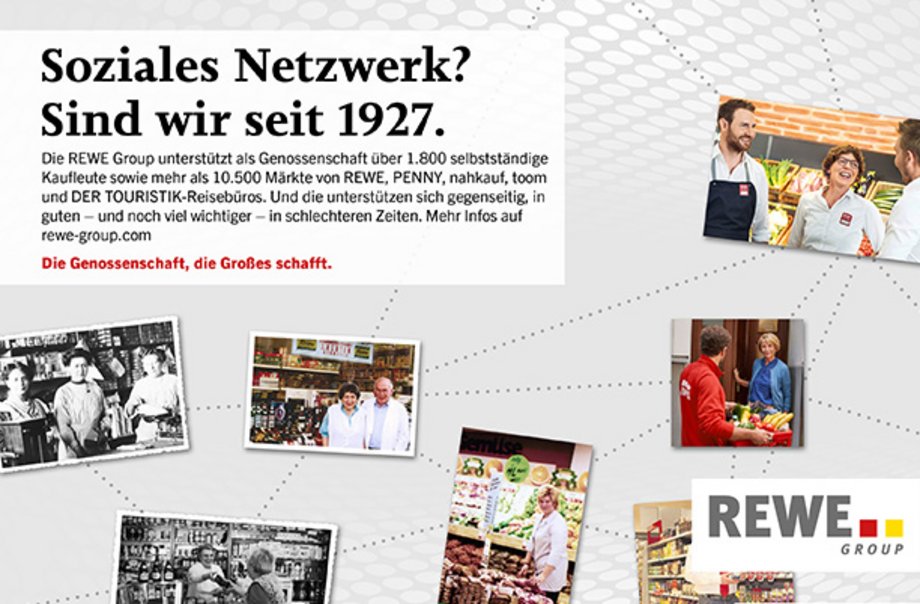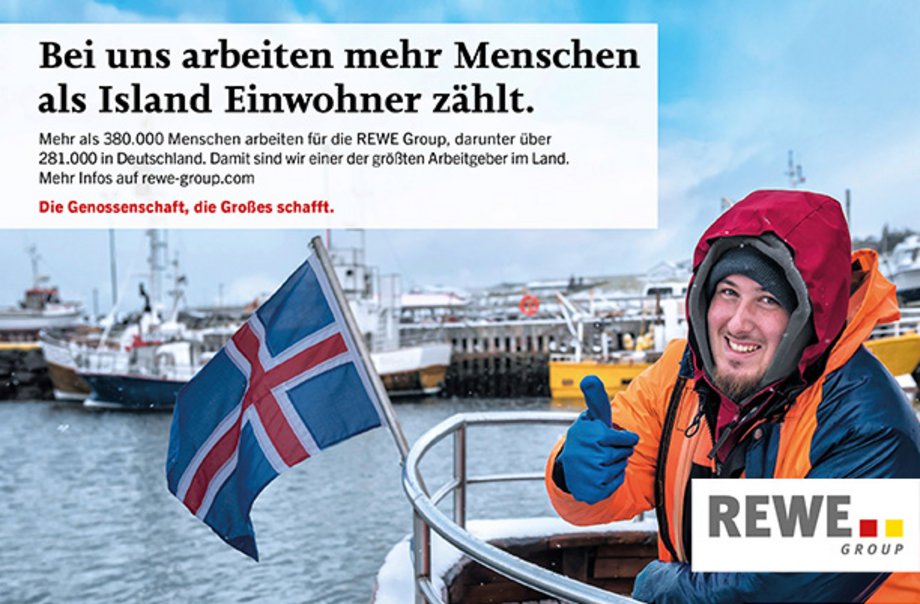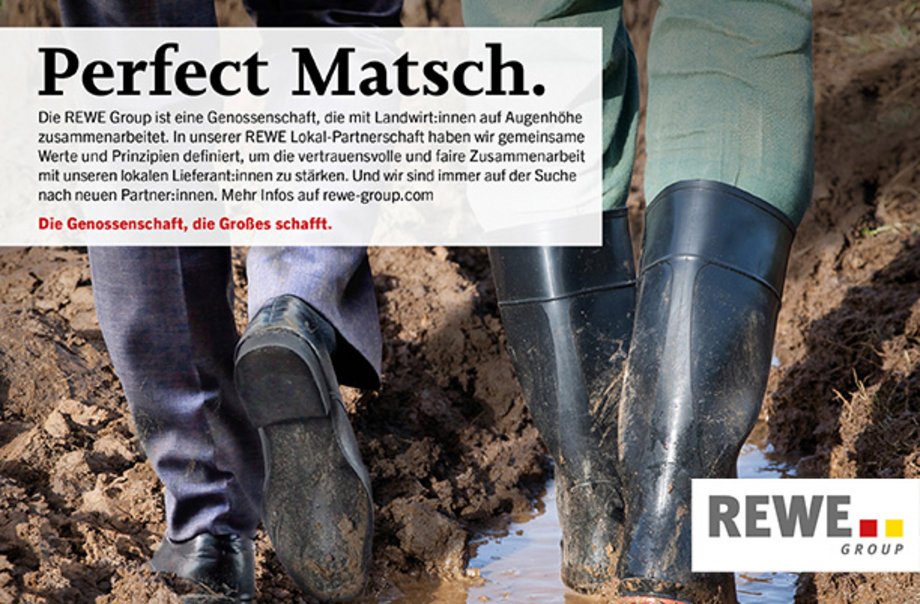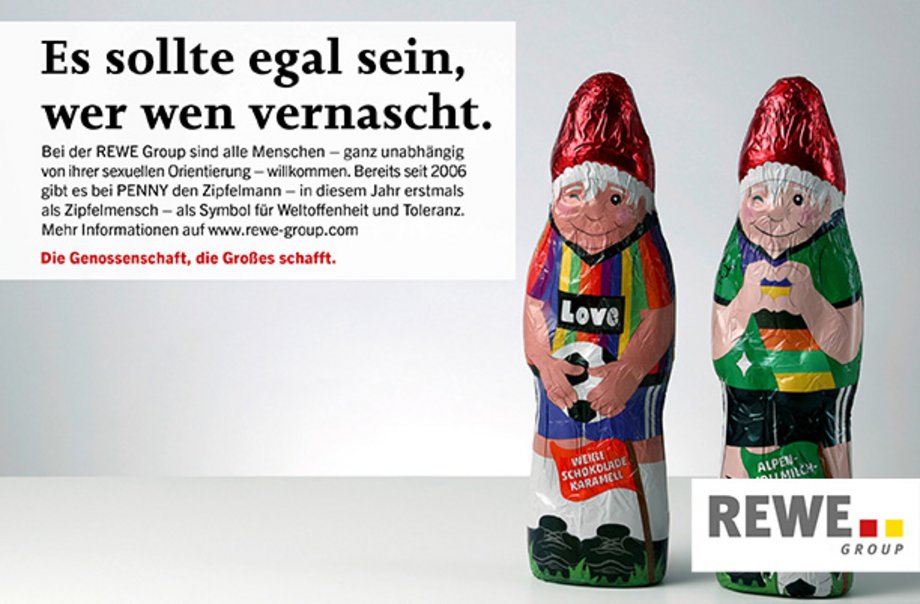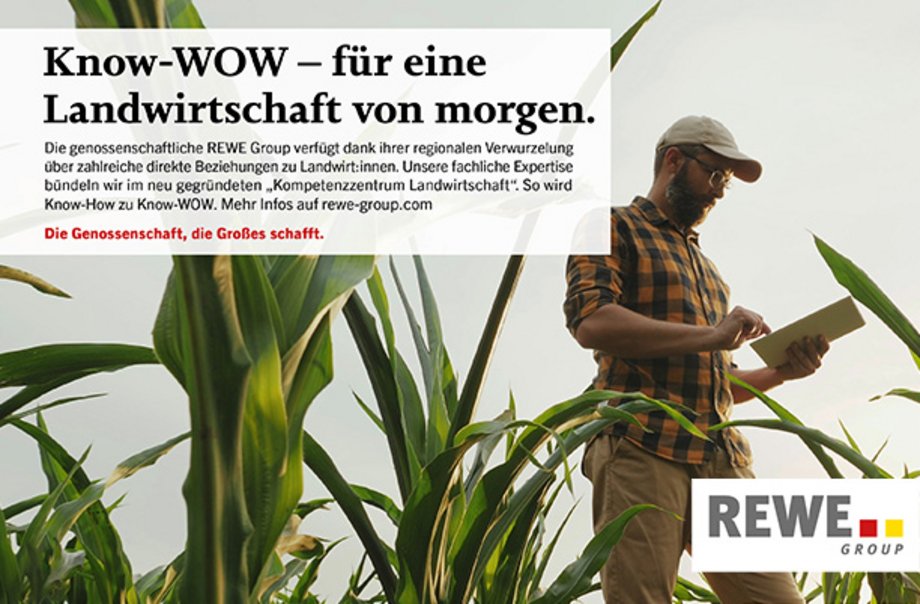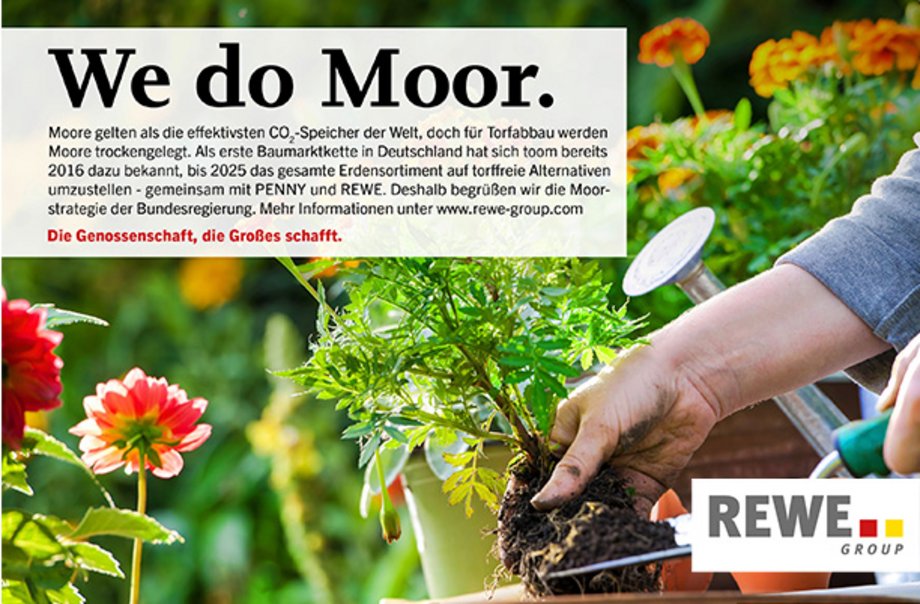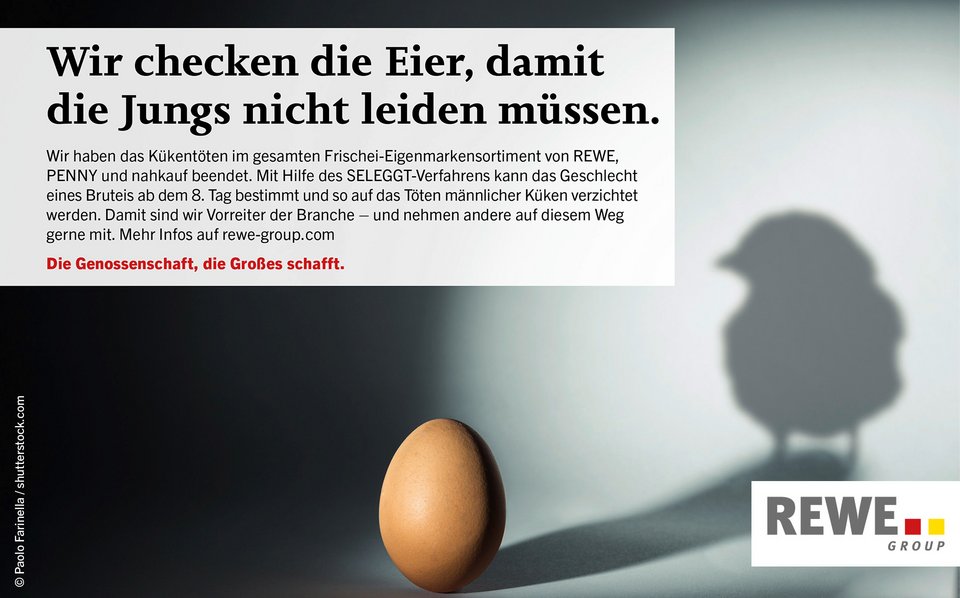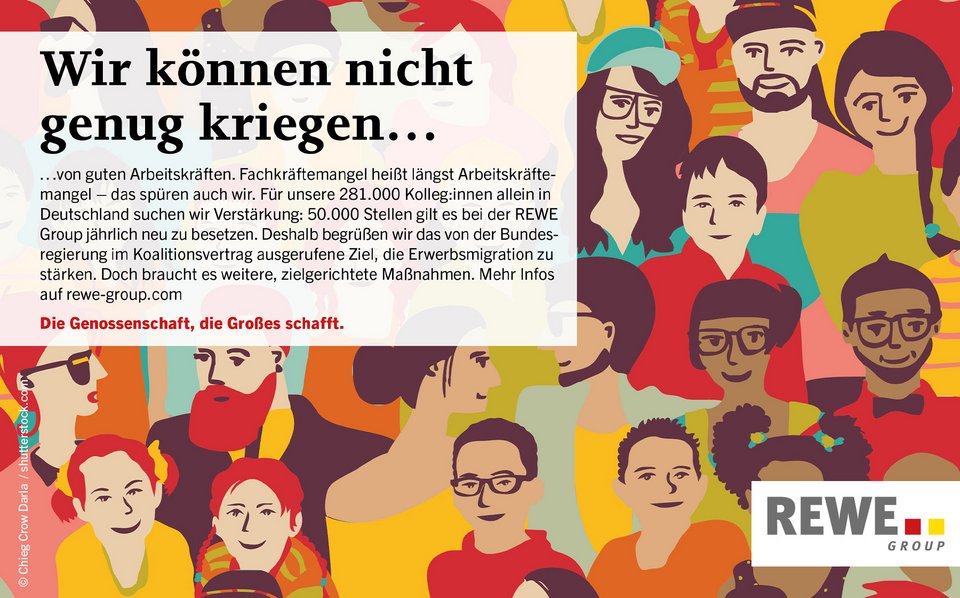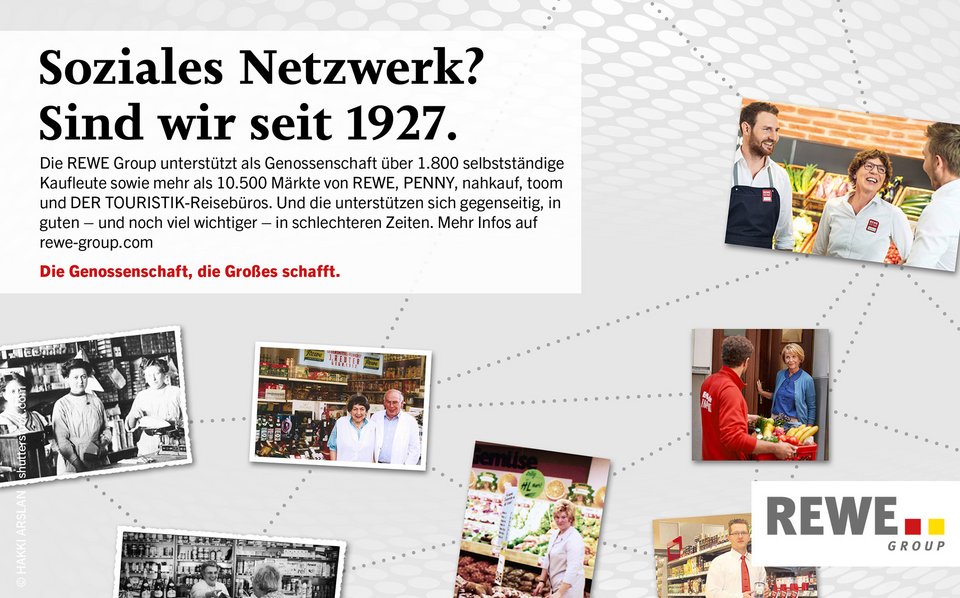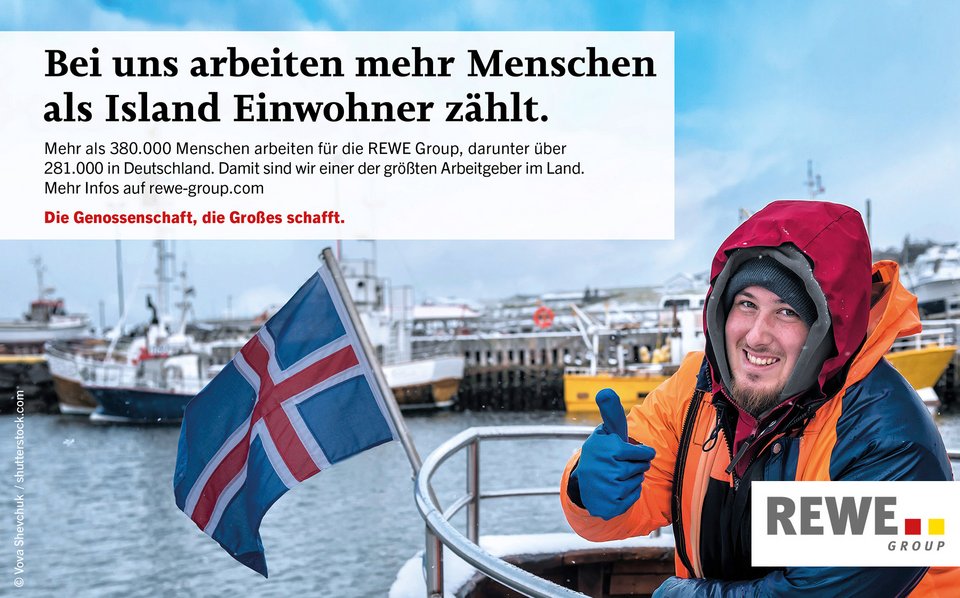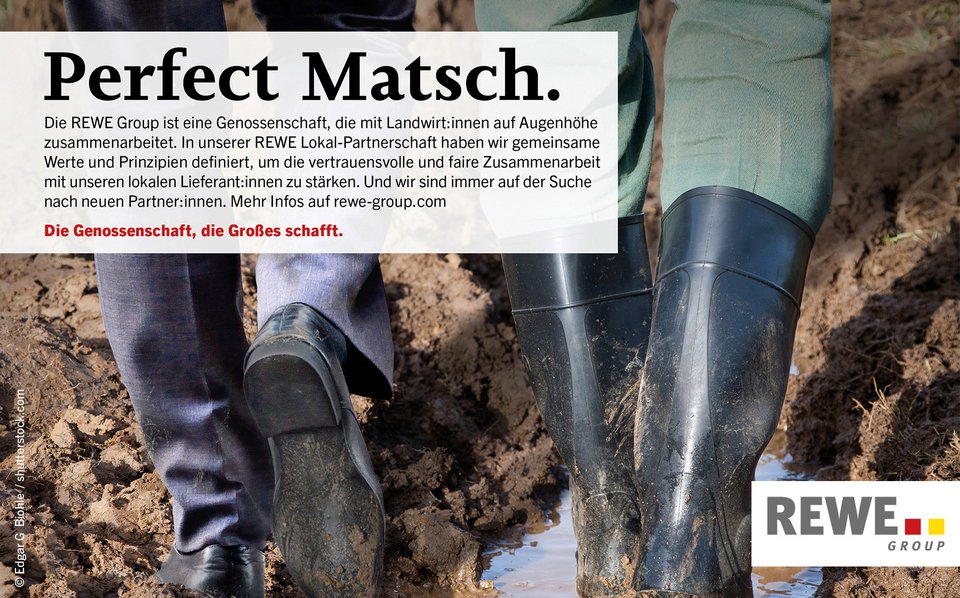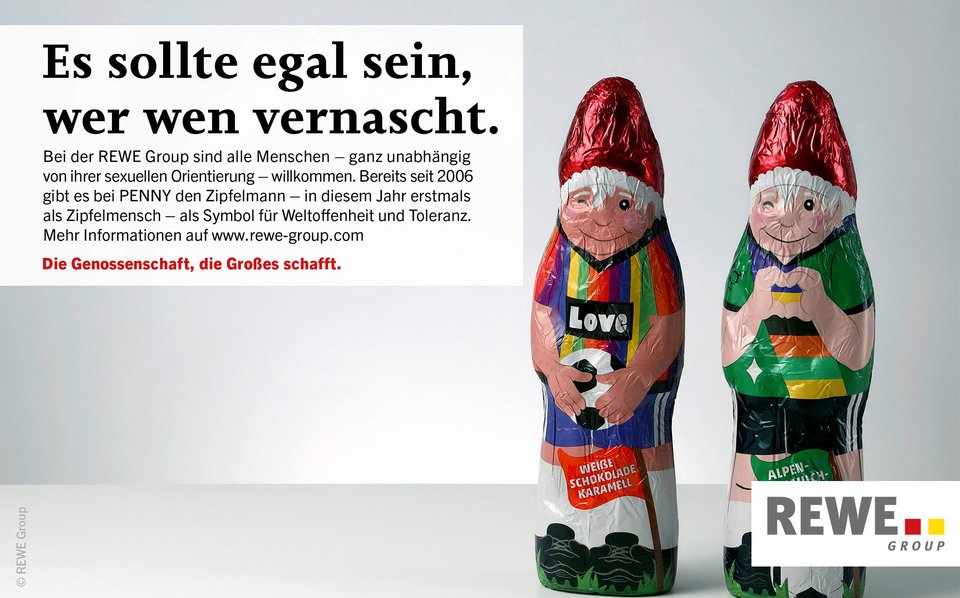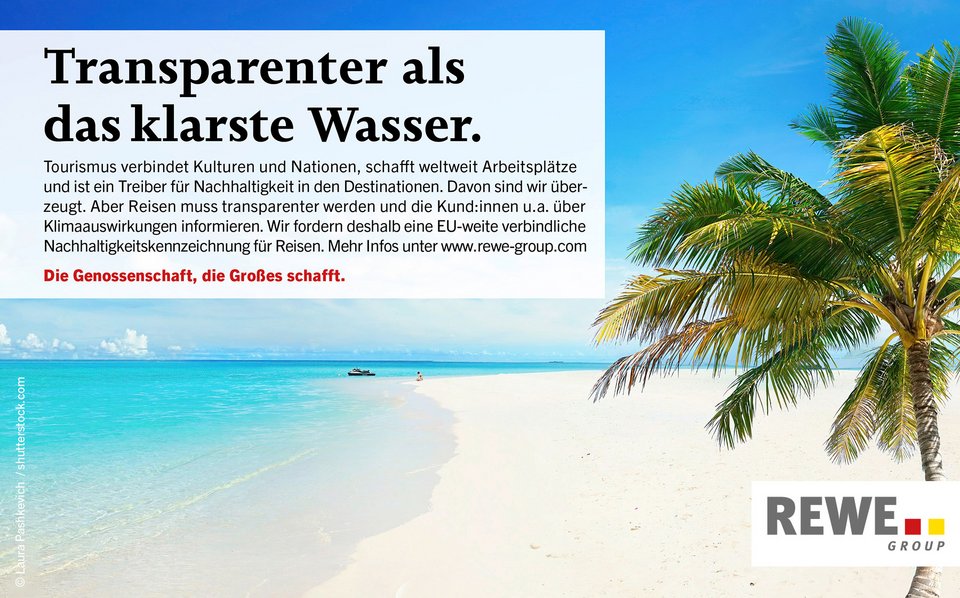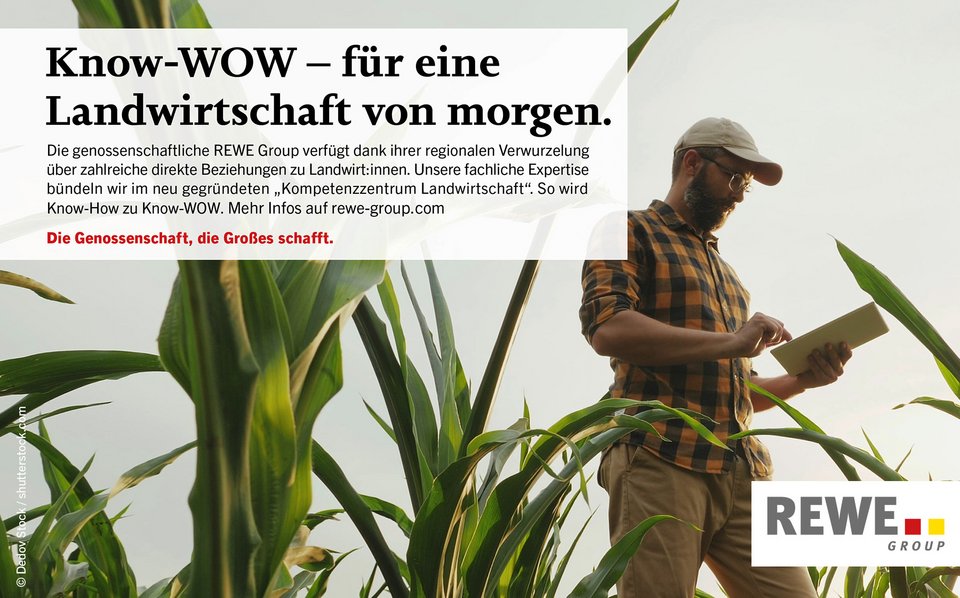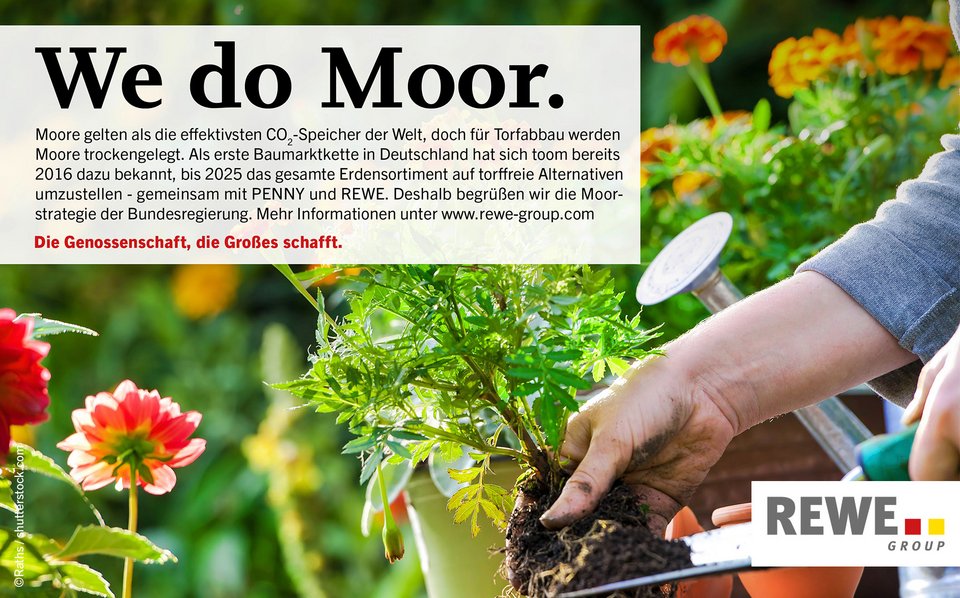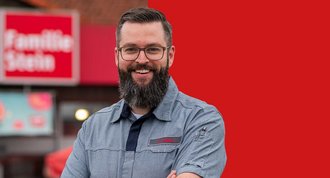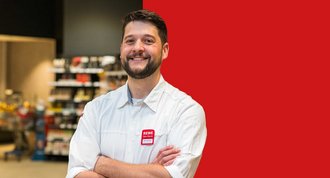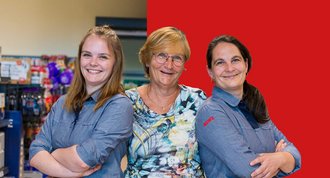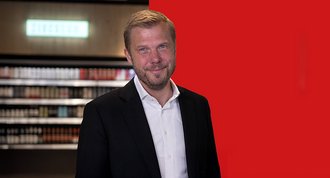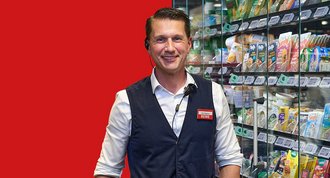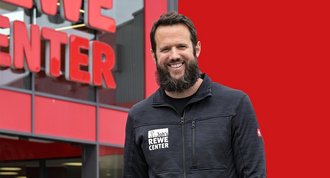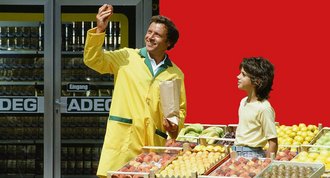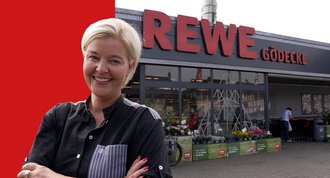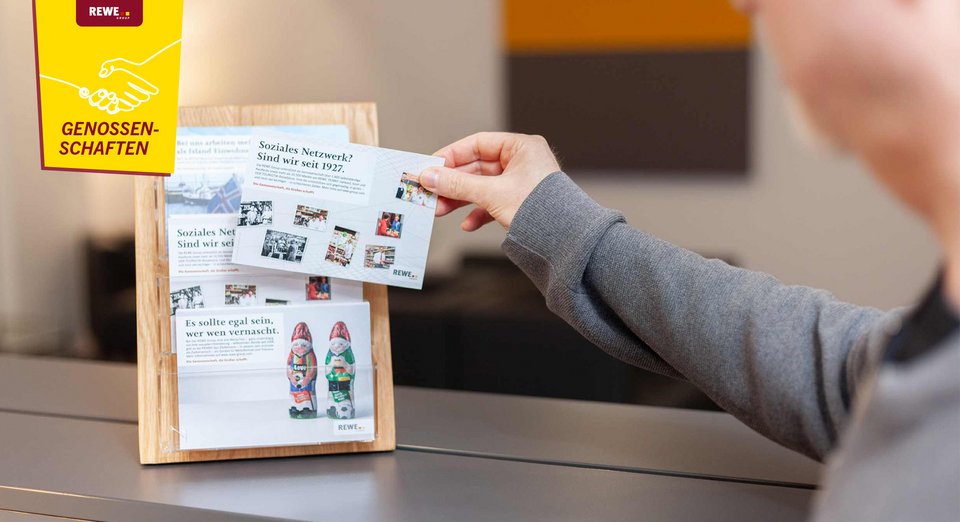
"The cooperative that creates great things" - this is the slogan of REWE Group's first political umbrella campaign. Its aim is to accurately communicate the company's demands and measures to politicians - and to do so with a wink. Group Director Public Affairs Emilie Bourgoin explains how this works and why we can be particularly proud of our co-operative structure.
one: Last spring, you launched a long-term campaign for political stakeholders. You used a wide variety of motifs to address topics relating to REWE Group and the industry in short, snappy texts and images. How did this unusual idea come about - and who is the target group?
Emilie Bourgoin: The current Bundestag has never been so young and so female since reunification. Around 280 new MPs have joined since the end of 2021. This requires new or additional communication channels and forms of communication on our part. We have always been at the forefront in this respect: we were the first retail company to set up a regional network of elected representatives, were one of the first to have an office in Berlin and initiated the first major political events in Berlin. Now we wanted to break new ground in our approach, but also in the communication of our demands and measures: accurate, approachable and recognisable. This applies not only to the Berlin political stage, but also to our work in Brussels, the federal states and at local level. The campaign takes place largely on social media, making us even more approachable, visible and also very up-to-date. It's clear that the umbrella campaign is no substitute for direct dialogue on the ground, for example with colleagues or retailers. After all, we can only communicate positions and arguments in a truly sustainable way through dialogue. But for us, the campaign is a supplement and a door opener: we want to make people curious about us and our topics and show them what makes REWE Group tick and what values we live by. The challenge was to translate this into images and text - with a wink. I think we succeeded.
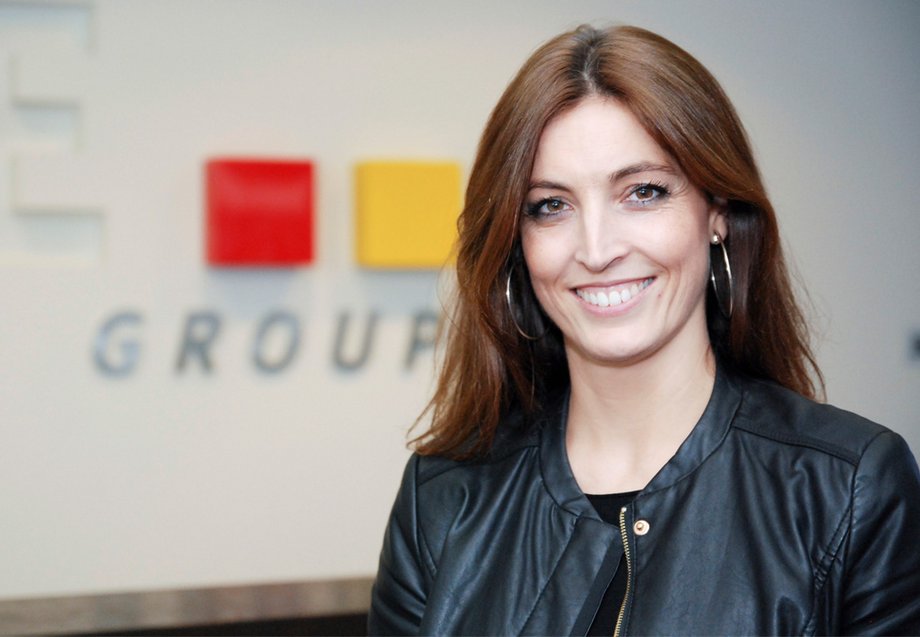 Emilie Bourgoin (Photo: Achim Bachhausen)
one: Why is the cooperative the central theme of the campaign?
Emilie Bourgoin (Photo: Achim Bachhausen)
one: Why is the cooperative the central theme of the campaign?
Emilie Bourgoin: Our co-operative roots are what make our company special - and also set us apart from other economic players. We manage many major projects that have socio-political relevance for precisely this reason - because we have a shared value system and in a cooperative we all support decisions together. Be it the abolition of printed flyers or plastic bags from our stores. We want to communicate this with the campaign and emphasise the diversity of our topics and our commitment.
one: Can you give us an example? What is your favourite theme of the campaign?
Emilie Bourgoin : I like our slogan "Social network? We have been since 1927" - because it's just so true. Sustainability and solidarity are already anchored in the idea of the cooperative. But we have also developed motifs for very specific political issues, such as the killing of chicks. Our slogan here is "We check the eggs before the boys suffer". So it's a slogan with a lot of tongue-in-cheek, but the fact is that we have achieved something big on this topic. We were pioneers in the industry and were able to act before the politicians. We even took up the PENNY Zipfelmenschen for our Christmas greeting: "It shouldn't matter who eats whom." We stand for diversity and we can all be proud of that. However, our aim is also to take up current issues and position ourselves on them.
one: How do you reach your target group with the campaign?
Emilie Bourgoin : Our campaign is designed for the long term. We are present wherever our political stakeholders are: At our events and trade fair stands, for example, but we also use the slogan on our business cards or in sponsoring - and since September last year, very specifically on our new Public Affairs Twitter channel. We have also invited our retailers to share motifs on their respective social media channels that they can identify with. We want to arouse people's curiosity and position ourselves as a dialogue partner for the respective topics - which we are then happy to discuss in greater depth in a personal exchange.
The campaign comes from the field of Public Affairs and is clearly aimed at political stakeholders, i.e. not only MPs but also their employees, associations and ministries. It is not a marketing or employer campaign - we have good colleagues for that.
one: There are also other co-operatives in the food trade..
Emilie Bourgoin: What's special about us is the close interaction between the head office, regions and retailers. Our 1,800 retailers are involved in strategic considerations and at the same time give their input back to the organisation. And it is this dynamic that makes us special, fast and powerful. We also want to show politicians that we are a local player that is strongly committed and invests a lot. You can rely on us, we are crisis-proof. Corona has clearly demonstrated this, for example, when we managed without state aid despite the slump in Travel and Tourism - because other business units and our retailers absorbed and supported this. We may be a large company, but we are an association of many small entrepreneurs. Many of the people we talk to don't always realise that.
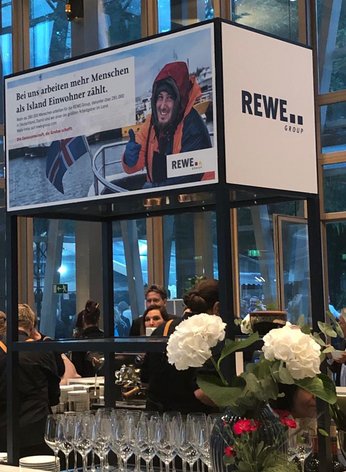 one: What image do you think co-operatives have these days? Some people associate them with a lack of dynamism and long decision-making processes..
one: What image do you think co-operatives have these days? Some people associate them with a lack of dynamism and long decision-making processes..
Emilie Bourgoin: The term can sound outdated, but it has experienced a renaissance in recent years. Because there are many successful cooperatives in other fields, for example in the housing or energy sector. I would see the voting processes as an advantage rather than a disadvantage: Everyone has a vote with us and therefore also takes responsibility. And the decision-making processes are very transparent. We are also so well organised internally that we can reach decisions quickly.
one: What are the initial reactions to your campaign?
Emilie Bourgoin: Very positive. Humour can also - or especially - be a good door opener for serious topics. And we don't just pay lip service to it. We often hear the phrase "we really buy that" from politicians, even when we talk about our cooperative values. And that is of course because we not only live them every day, but also make them tangible for others through our actions.

